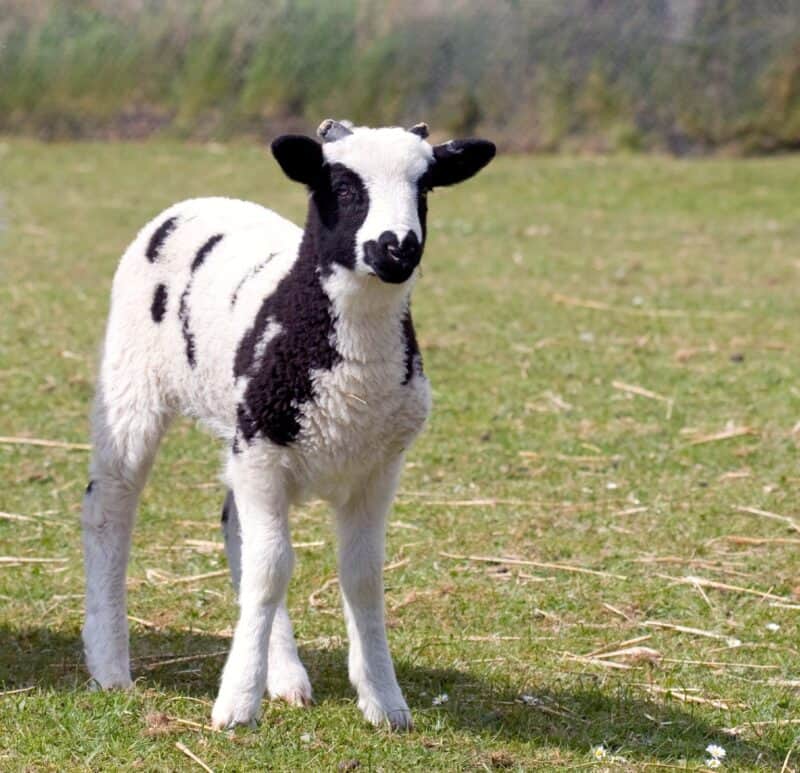When it comes to preparing any meat, understanding the inherent flavor profile of various types and also various cuts is essential if you want to make a truly memorable dish.

After all, most of us already know that different seasonings and other ingredients pair better with certain flavor profiles than others.
You generally don’t season beef, for instance, in the same way that you flavor fish! But how about something like lamb?
Not too many people in North America eat lamb these days. What does lamb taste like?
Lamb has a unique flavor that often compares favorably with high quality beef. It is usually described as tasting rich and savory, but with a slightly sweet note that can complement many recipes.
Lamb is something that has been eaten for ages, and compared to cuts of meat from older sheep it is prized for its delicate, tender quality.
Whether you’ve tried lamb or not, understanding how to best make use of it in the kitchen is important if you want to try cooking with it.
Keep reading and I’ll tell you a little bit more about the qualities of lamb meat…
Lamb Doesn’t Really Taste Like Pork as Some Say
You’ll sometimes hear folks say that lamb tastes like pork, another “white meat”. I am here to tell you nothing is further from the truth!
While they do have some similar flavor notes, lamb has a much more robust flavor and a slightly sweet note to it that can contrast with other savory ingredients in recipes. But it isn’t even close to tasting like pork!
I think this persistent claim only sticks around because of a sort of memetic quality to it: these people have never tried lamb, and only repeat what they have heard from other people who have never tried it.
Lamb Has a Unique Taste, but is Closer to Beef
Lamb has its own, distinct but still familiar flavor that is rich and savory, much more so than pork or chicken. In fact, if you were to make a good comparison for someone who had never tried it,
I’d suggest telling them that lamb tastes similar to high-quality cuts of beef. That might give them a good base understanding of the flavor they can expect.
And although we are comparing lamb to beef, understand that lamb has a unique taste of its own.
Many recipes will work out well enough using either, but there are plenty that need special preparation or modified seasonings if you really want them to shine.
You generally cannot use them interchangeably, or expect people to not catch the difference!
Is Lamb Considered Red Meat?
Yes, it is! That is the other part of the fib concerning lamb tasting like pork that is so baffling: neither are white meat at all! Lamb is definitively, no question about it, a red meat.
So the next time you encounter someone telling you that lamb is like pork, or can be used interchangeably with other types of meat in recipes, you are now armed with the knowledge to politely correct them!
What Qualifies Lamb as Red Meat?
Why do people think lamb is white meat? I don’t know; because “lambs are white as snow” maybe?
Anyway, red meat and white meat are differentiated based on their color, texture, and fat content.
Red meat comes from mammals that have a higher concentration of myoglobin in their muscles, which gives them a darker pink or red color.
White meat, on the other hand, comes from animals that have less myoglobin in their muscles, giving them a lighter color- usually!
Sometimes appearance alone is not enough to say which category any meat belongs to.
But lamb is considered red meat because it comes from young sheep, which definitely have high concentrations of myoglobin in their muscles.
In addition to differences in color, there are also variations in fat content between red and white meats. Red meat generally has more fat and a higher proportion of saturated fats than white meat.
Note that “Lamb” Comes from Young Sheep!
To be clear, and because this is another misconception I hear often, lamb meat doesn’t mean sheep meat, per se.
Lamb is indeed sheep meat, but it comes from young lambs, aged no older than 1 year.
Once a sheep is older than 1 year, then it can no longer be labeled as “lamb” in the culinary sense. Rather, these cuts of meat from older sheep are referred to as mutton (or hogget in some countries).
Is Lamb the Same thing as Mutton? What’s the Difference?
All lamb is technically mutton, but not all mutton is lamb for the reasons we mentioned in the preceding section. Mutton comes from older, mature sheep.
Lamb and mutton also have different flavor profiles: mutton tends to be stronger and “gamier” and also tougher compared to lamb.
That is why lamb is preferred in most recipes – it has a milder flavor but still retains that trademark richness and savoriness.
Tom has lived and worked on farms and homesteads from the Carolinas to Kentucky and beyond. He is passionate about helping people prepare for tough times by embracing lifestyles of self-sufficiency.
